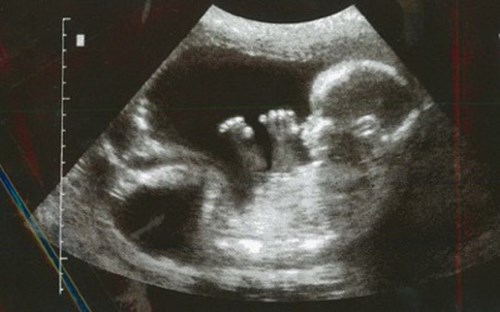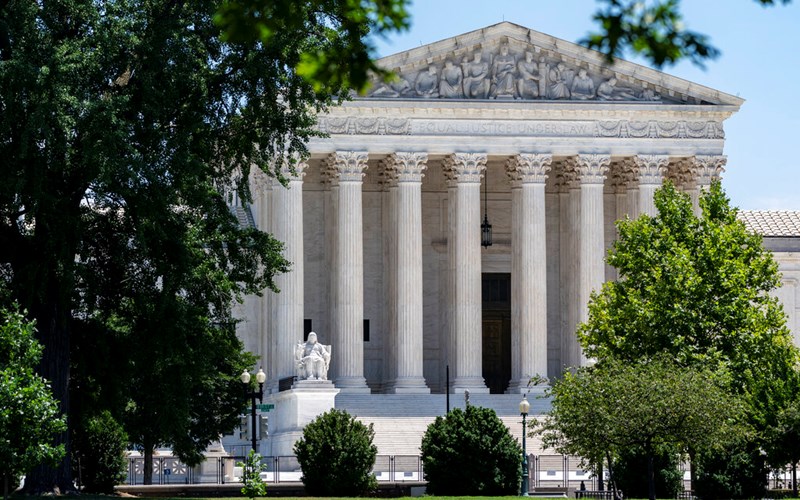Now critics say the future of birth through in vitro fertilization and women’s “reproductive rights” are in jeopardy.
It hasn’t worked that way in another southern state, which made the same decision decades ago.
Pro-Life advocates have hailed the ruling, and one group is hoping it will influence the life discussion in another state.
“Every unborn life is a human being," attorney Mat Staver, the Liberty Counsel founder, said in a statement. "Every human life begins as an embryo, and now the Alabama Supreme Court has upheld the decision of its citizenry that every unborn life should be protected, no matter their stage or location."

Alabama's ruling, he further said, has "far-reaching implications" including a legal move by Florida-based Liberty Counsel to fight the push for an abortion amendment in the state.
“Using this precedent, Liberty Counsel filed a supplemental authority today with the Florida Supreme Court regarding the proposed abortion amendment to Florida’s constitution. Currently, the Florida Constitution protects the rights of a “natural person.” During the oral argument on February 7, Florida Chief Justice Carlos Muñiz asked attorneys on both sides of the abortion issue if the ballot summary should apprise voters of how the proposed abortion amendment could impact the constitution if its definition of “natural person” also included the unborn,” writes Liberty Counsel in a news release.
“Liberty Counsel is using Alabama’s ruling to argue that Florida’s Constitution, like Alabama’s, affirms “that an unborn child qualifies as a human life, a human being, and a person.” In response to Chief Justice Muñiz’s question, Florida’s deceptive amendment proposal as written misleads voters by not explaining how it will take away a protected right to life for the unborn.”
Nikki Haley, a GOP nominee longshot against Donald Trump, told NBC News earlier this week that she agrees with the Alabama ruling.
“Embryos, to me, are babies,” Haley said.
Hillary Clinton, a lifelong abortion supporter, disagrees.
“They came for abortion first. Now it’s IVF, and next it will be birth control. The extreme right won’t stop trying to exert government control over our most sacred personal decisions until we codify reproductive freedom as a human right,” she wrote on X Thursday.
Alabama justices interpreted existing law
The Alabama justices referenced an 1872 state law allowing parents to sue over the death of a minor child. They concluded the law “applies to all unborn children regardless of their location.”
In vitro fertilization is a common approach for women seeking to become pregnant. It’s a latin term meaning outside the natural biological environment.
The process takes an egg from a woman’s ovaries to fertilize it in a lab with male sperm to form an embryo. After the embryo has developed, one or more can be transferred to the woman’s uterus. Development may take several days.
 After the Alabama Supreme Court decision, the state’s premiere hospital system paused IVF procedures, it announced Wednesday, citing concerns for potential criminal prosecution.
After the Alabama Supreme Court decision, the state’s premiere hospital system paused IVF procedures, it announced Wednesday, citing concerns for potential criminal prosecution.
“We are saddened that this will impact our patients’ attempt to have a baby through IVF,” read a statement from the University of Alabama-Birmingham health system, “but we must evaluate the potential that our patients and our physicians could be prosecuted criminally or face punitive damages for following the standard of care for IVF treatments.”
UAB’s Division of Reproductive Endocrinology and Infertility will continue to retrieve eggs from women, but the procedure will stop there, the statement said.
Decisions like this could cause large-scale disruption for families and physicians, AL.com warned, but noted effects of the Court’s ruling remain unclear.
Louisiana protected embryos almost 40 years ago
In Louisiana, state law has declared embryos as human beings since 1986, yet IVF is available in the state’s larger cities.
“For decades, Louisiana law has been clear that, regardless of the circumstances of conception or the location of the developing embryo, human life begins at conception and deserves protection. These ethical standards have applied to in vitro fertilization for many years in Louisiana.
“It is a scientific fact that the human embryo is a human being. In numerous medical textbooks, experts in embryology state that the human embryo is ‘the beginning of a new human being.’ Early pioneer of in vitro fertilization, Dr. Landrum B. Shettles, also said: ‘The zygote is human life… there is one fact that no one can deny; Human beings begin at conception,’” Benjamin Clapper, the executive director of Louisiana Right to Life, said in a statement.
Louisiana law provides legal protection for embryos not yet implanted in the mother’s womb and also prevents the intentional destruction of embryos.
The law states that “every unborn child is a human being from the moment of conception and is, therefore, a legal person for purposes under the laws of this state and the Constitution of Louisiana.”







